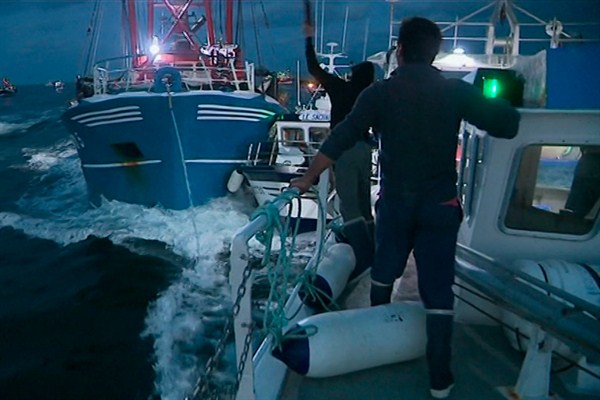French and British fishing vessels clashed at sea last month, marking an escalation in an ongoing dispute over scallop stocks in the English Channel. French fishermen are prohibited from dredging the shellfish during the summer months in order to prevent overfishing, while their British competitors fish year-round, leading the French to accuse the British of depleting stocks. Negotiators from the two countries failed to finalize a resolution to the impasse last week. According to Johan Bergenas, senior director for public policy at Vulcan, this skirmish is only part of a growing global conflict over increasingly scarce fish stocks and fishery resources. He discusses the tensions and their potential remedies in an email interview with WPR.
World Politics Review: What are the factors that have caused this issue to flare up in recent years, culminating in the recent violent clashes between French and British fishing vessels?
Johan Bergenas: The incident between the French and British fishing fleets is just one example of a broader, global “tragedy of the commons” dilemma over fish. Fish stocks are a common pool resource requiring cross-boundary cooperation, but the clashes over the highly valuable scallop fisheries indicate a failure in international management of this natural resource. France has created seasonal fishing limitations to protect the stock and its sustainable harvest, while Britain allows its fishermen to harvest all year-round. As a result, the British fleet felt that they had a right to fish there, and the French fleet felt that they were being robbed of their livelihoods. This policy difference led to an international incident. A different conflict among traditional allies recently popped up between Canada and the United States, over lobster fishing in a disputed maritime border region north of Maine.

